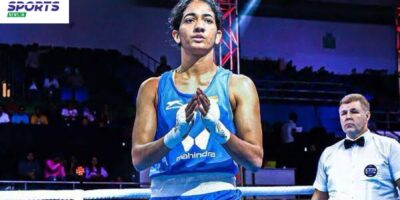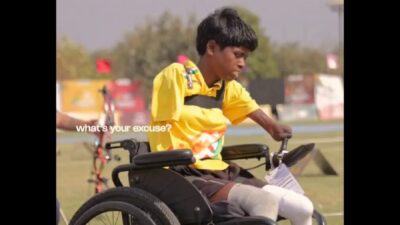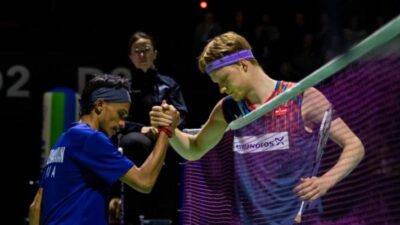In a move that has reignited the national debate over gender identity and athletic fairness, the United States Olympic and Paralympic Committee (USOPC) has officially barred transgender women from participating in women’s sports categories. This policy change, quietly published on the USOPC’s website under the “Athlete Safety Policy,” marks a significant shift in the national sports landscape and comes in direct response to an executive order issued by President Donald Trump earlier this year.

The-United-States-Olympic-and-Paralympic-Committee-USOPC-has-officially-barred-transgender-women-from-participating-in-women’s-sports-categories
The policy, which was confirmed via a formal letter sent to national governing bodies (NGBs) of various Olympic and Paralympic sports, emphasizes the USOPC’s “obligation to comply” with Trump’s February executive order titled “Keeping Men Out of Women’s Sports.” The order threatens to rescind federal funding from organizations that allow transgender athletes assigned male at birth to compete in female categories.
The Policy Shift and Its Immediate Impact
USOPC CEO Sarah Hirshland and President Gene Sykes jointly addressed the policy update in a letter to U.S. national sports federations, stating:
“As a federally chartered organization, we have an obligation to comply with federal expectations. Our revised policy emphasizes the importance of ensuring fair and safe competition environments for women. All National Governing Bodies are required to update their applicable policies in alignment.”
The new policy effectively mandates that all sports under the USOPC umbrella—including track and field, swimming, gymnastics, and more—must revise their eligibility criteria to exclude transgender women, defined as individuals assigned male at birth who later identify as female, from women’s events. While the USOPC stopped short of outlining the enforcement specifics, its directive leaves no room for ambiguity.
This move aligns the USOPC with the NCAA, which had earlier revised its transgender participation policy following the same federal order. The NCAA now limits women’s category eligibility to athletes assigned female at birth, regardless of transition status or hormone levels.
The Trump Administration’s Stance and Executive Order
President Trump’s executive order, issued in February 2025, marked a major federal intervention into a debate previously left largely to states and sports organizations. Framed by its supporters as a measure to protect the integrity of women’s sports, the order prohibits the use of federal funds for any organization or competition that allows transgender women to participate in female events.

President-Trump’s-executive-order-issued-in-February-2025-marked-a-major-federal-intervention-into-a-debate-previously-left-largely-to-states-and-sports-organizations
The directive was met with swift action from key institutions. The NCAA was the first major national body to comply, altering its transgender inclusion policy within a week. Now, with the USOPC following suit, Trump’s order is reshaping elite-level sports in the United States.
At a press conference earlier this year, Trump doubled down on his stance:
“This isn’t about discrimination; it’s about protecting biological women and ensuring they have a level playing field. We must return to common sense in sports.”
His comments, while praised by some, have drawn sharp rebuke from LGBTQ+ advocacy groups and medical professionals who argue that such policies marginalize already vulnerable individuals.
Backlash from Civil Rights Advocates and Athlete Groups
Critics of the new USOPC policy describe it as discriminatory, scientifically unfounded, and damaging to the inclusivity that modern sports should aspire to. LGBTQ+ rights organizations have condemned the decision, calling it a “capitulation to political pressure.”
Human Rights Campaign President Kelley Robinson said in a statement:
“This policy targets a tiny minority of athletes and does so under the guise of fairness. It sends a damaging message to all transgender people that their identities are invalid. It is deeply disappointing that the USOPC, an organization built on the values of courage, inclusion, and excellence, has chosen this path.”

This-policy-targets-a-tiny-minority-of-athletes-and-does-so-under-the-guise-of-fairness
Athlete Ally, an organization supporting LGBTQ+ athletes, criticized the USOPC for what it called “a lack of transparency and consultation with affected communities,” while adding that the move reinforces harmful stereotypes.
Some prominent athletes have also spoken out. Megan Rapinoe, Olympic gold medalist and outspoken advocate for gender equality, tweeted:
“We’re seeing history repeat itself in the worst way. Today it’s trans athletes. Tomorrow, who knows? This is not how you protect women’s sports — this is how you politicize them.”
Supporters Argue It’s About Fairness and Safety
Conversely, supporters of the decision argue that it is necessary to maintain competitive equity and protect cisgender women in sports. They point to physiological differences that remain even after hormone therapy and contend that categories based on biological sex are the only fair way to structure elite competition.

Conversely-supporters-of-the-decision-argue-that-it-is-necessary-to-maintain-competitive-equity-and-protect-cisgender-women-in-sports
Former Olympic swimmer Sharron Davies, who has long advocated for female-only sports categories, supported the move:
“This is a win for fairness. While inclusion is important, fairness must always come first when we talk about medals, scholarships, and Olympic dreams.”
Supporters also argue that the participation of transgender women in elite women’s sports has caused confusion, uneven competition, and eroded trust in sport governance.
State and Global Policy Context
The U.S. policy shift mirrors developments at the state level. Over two dozen U.S. states have passed laws barring transgender athletes from participating in female categories in school and college-level sports. Some of these laws are currently being challenged in federal courts, but many remain in effect, reflecting a growing divide over transgender rights in sports.

The-U.S-policy-shift-mirrors-developments-at-the-state-level-Over-two-dozen-U.S-states-have-passed-laws-barring-transgender-athletes-from-participating-in-female-categories-in-school-and-college-level-sports
Internationally, several major sporting federations have also taken stricter stances.
World Aquatics (formerly FINA) has banned transgender women who experienced male puberty from competing in elite women’s events.
World Athletics (track and field) adopted similar policies in 2023.
UCI (Union Cycliste Internationale) has also restricted transgender women from competing in women’s cycling events.
The International Olympic Committee (IOC), under its new president Kirsty Coventry, has opted for a decentralized approach, allowing each sport to set its own criteria for transgender participation at the Olympic Games. However, with the Los Angeles 2028 Summer Games on the horizon, political pressure—including from President Trump—is mounting for the IOC to impose uniform restrictions.
Trump, speaking at a recent rally, said:
“When we host the Olympics in L.A., it should be clear — only biological women in women’s sports. Period.”
Implications for the 2028 Olympics and Beyond
The U.S. hosting of the 2028 Summer Olympics adds weight to the USOPC’s decision. The new policy may shape how athletes are selected, trained, and categorized for the Games. For transgender women aiming to compete in women’s sports at the highest levels, this effectively disqualifies them unless international federations or the IOC take a different stance.
Furthermore, the policy may embolden other countries to implement similar rules or reassess their existing guidelines. It could also prompt legal challenges, including potential appeals to the Court of Arbitration for Sport (CAS) or lawsuits claiming discrimination under U.S. civil rights law.
Scientific and Ethical Complexity
The science surrounding transgender athletes in sports is far from settled. While studies have shown that male puberty confers certain physical advantages — such as increased muscle mass and bone density — researchers caution that data is limited and not uniform across all sports or athletes.
Medical experts have also raised concerns about the mental health impact of exclusionary policies on transgender youth and elite athletes, warning that sweeping bans may cause more harm than benefit.
Conclusion: A Divisive Path Ahead
The USOPC’s decision to bar transgender women from competing in women’s categories marks a pivotal moment in the intersection of sports, politics, and identity. Supporters hail it as a necessary move to uphold fairness and protect women’s sports. Critics decry it as a discriminatory rollback of inclusion and a misuse of executive power.
As the United States prepares to host the world in 2028, its approach to gender and fairness in sports will remain under scrutiny—not just from athletes and fans, but from human rights watchdogs, courts, and history itself.
Click here to watch more!



















Comments